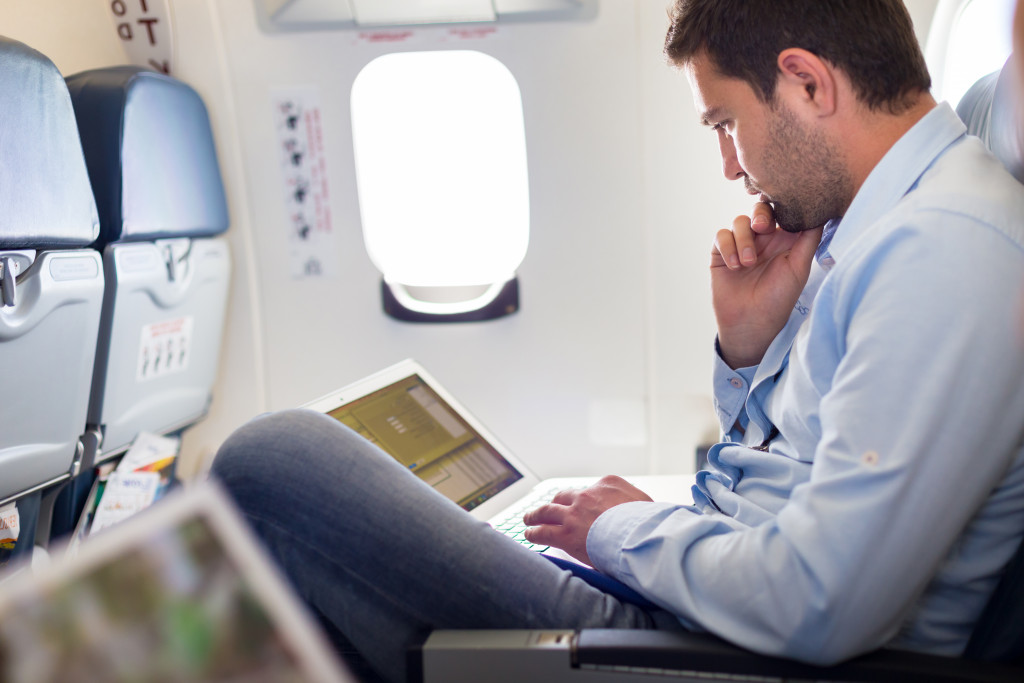If you’re in the business world, chances are you’ve had to take a business trip at some point. And if you haven’t, you probably will at some point in your career. Business trips are an essential part of doing business. They allow you to meet with clients and potential clients face-to-face, which can help you to build strong relationships. They also allow you to scout out new locations for your business or attend conferences and networking events.
However, when you travel, your body goes through a lot of changes. Some of these changes are good for you, like getting more exercise or being exposed to new cultures. But other changes can be bad for your health, like sitting in a cramped airplane seat for hours on end.
Here are some of the ways that long trips can affect your body:
You may get sick
Many people experience motion sickness when they travel, especially if they are going by car, boat, or plane. Motion sickness occurs when the inner ear and the eyes send different signals to the brain about movement. This can cause various symptoms, including nausea, vomiting, cold sweats, and dizziness.
You can do several things to reduce your risk of motion sickness, such as taking breaks often to get out of the vehicle and look at distant objects, eating smaller meals more frequently, and avoiding fatty and spicy foods. If you start to feel sick, sit down and close your eyes. Focusing on a still object will help your brain better process the conflicting signals it receives. With a little preparation, you can minimize your chances of getting motion sickness on your next trip.
You may get dehydrated
When you travel, it’s important to be aware of the risk of dehydration. Dehydration occurs when your body doesn’t have enough water. It can be caused by various factors, including heat, illness, and exercise.
Symptoms of dehydration include thirst, fatigue, and dizziness. If you’re dehydrated, you may also have a headache, dry mouth, and dark urine. If you’re traveling in a hot climate or participating in strenuous activity, staying hydrated is vital.
Be sure to drink plenty of fluids, and avoid caffeinated beverages, alcohol, and sugary drinks. If you’re feeling thirsty, it’s already too late—so drink up!
You may experience stress
Though it may seem like a vacation from the mundane, travel can actually be a significant source of stress. From figuring out logistics to dealing with unexpected problems, there are many potential stressful elements to any trip. And, of course, the actual act of travel can be taxing, whether you’re dealing with traffic, flying, or long drives. The good news is that there are some things you can do to minimize stress when traveling.
For example, planning ahead as much as possible can help you feel more in control and less anxious. It’s also important to be realistic about your expectations and give yourself some margin for error. After all, even the most well-planned trip will likely have its share of bumps in the road.
By being prepared for the occasional stressful moment, you can help ensure that your travels are enjoyable and memorable—for all the right reasons.
You may get jet lag

You may be familiar with the feeling of jet lag—that groggy, out-of-sorts feeling that can happen when you travel across time zones. Jet lag occurs because your body’s natural circadian rhythms—or sleep/wake cycle—are disrupted. The good news is that you can do some simple things to help reduce the effects of jet lag.
For starters, melatonin capsules can be helpful in resetting your body’s clock. Melatonin is a hormone that helps regulate sleep, and taking it in capsule form can help you adjust to a new time zone more quickly. It’s important to take melatonin at the right time, though. Typically, you’ll want to take it a few hours before you want to go to sleep in your new time zone.
In addition, it can be helpful to avoid alcohol and caffeine while traveling, as both of these substances can interfere with sleep. It’s also a good idea to get plenty of fresh air and exercise during the day, as this can help you feel more alert and rested come nightfall. By following these simple tips, you can make jet lag a thing of the past.
The next time you take a long trip, keep all these things in mind. Remember that you may get sick, get dehydrated, experience stress, or experience jet lag. They may seem like minor details, but they can make a big difference in how your body functions and how comfortable you are on your journey. By being prepared for the potential challenges that come with long trips, you can minimize the risks and enjoy your travels more. To stay healthy while traveling, be sure to drink plenty of fluids, practice good hygiene, and take some time to relax.

